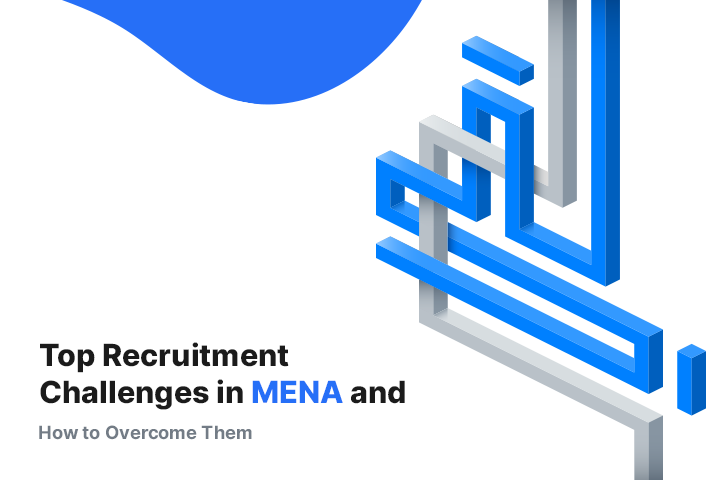In the world of work, there has been a traditional emphasis on intellectual intelligence, or IQ, when evaluating job candidates and employee performance. However, in recent years, businesses have recognized the significance of emotional intelligence, or EQ, in the workplace.
In this article, we delve into the impact of emotional intelligence on individual and organizational achievements. From fostering collaborative environments to enhancing leadership capabilities, we discuss why emotional intelligence is no longer just a soft skill but a cornerstone for thriving in the contemporary workplace. Let's explore how hiring for emotional intelligence transforms not only careers but entire work cultures.
Suggested: Explore Qureos’ job hiring platform!
{{hi-link="/sandbox/home-v3"}}
What is Emotional Intelligence (EQ)?
EQ, or emotional intelligence, is the ability to recognize, understand, and manage one's own emotions, as well as the emotions of others. It involves skills such as empathy, self-awareness, self-regulation, and social skills.
What is Intellectual Intelligence (IQ)?
IQ, or intellectual intelligence, refers to a person's ability to reason, learn, and problem-solve. It is typically measured by standardized tests such as the IQ test.
What is the difference between EQ and IQ?
While IQ is important for cognitive tasks such as problem-solving and critical thinking, EQ is essential for social interactions, leadership, and teamwork. EQ enables individuals to navigate complex social dynamics, build strong relationships, and effectively manage conflicts.
Personality Traits of High EQ Employees:
1. Self-Awareness
2. Empathy
3. Social Skills
4. Emotional Regulation
5. Motivation
6. Adaptability
7. Conflict Resolution Skills
8. Optimism
9. Open-Mindedness
10. Resilience
Why is EQ Important in the Workplace?
Here are some of the benefits of hiring employees with high emotional intelligence in the workplace.
Better communication
Individuals with high EQ tend to be better communicators. In addition, teams with high EQ tend to be more cohesive and effective, as team members are able to collaborate effectively and manage conflicts in a productive manner. They contribute to improving the overall team dynamics.
More effective leadership
Leaders with high EQ are able to inspire and motivate their teams, build strong relationships with their colleagues, and effectively manage conflicts. They are able to navigate complex social dynamics and make decisions that take into account the needs and perspectives of their team members.
Build more collaborative teams
EQ is essential for building and maintaining strong workplace relationships. Individuals with high EQ are able to understand and respond to the emotions and needs of their colleagues, which fosters a culture of collaboration and mutual respect.
Stress Resilience and Adaptability
Individuals with high emotional intelligence exhibit greater resilience in the face of stress, adapt more effectively to change, and maintain a positive outlook, contributing to a more resilient and dynamic workplace culture.
Increased Job Satisfaction
Employees with strong emotional intelligence are often better equipped to manage stress, navigate workplace challenges, and maintain a positive attitude, leading to higher job satisfaction and a greater likelihood of staying with a company long-term.
Read more - Learn effective employee retention strategies!
The Evolution of Workplace Culture
Over the years, workplace culture has undergone significant changes, which have contributed to the increasing focus on EQ.
Here are some of the key factors driving this evolution:
- The impact of technology and automation on workplace dynamics: The demand for EQ has increased as automation and technology continue to disrupt traditional job processes. Routine tasks can be automated, but emotional intelligence is a uniquely human quality that allows employees to negotiate complex interpersonal dynamics and cooperate effectively.
- The changing expectations of employees and employers: Employees today are looking for more than just a job that pays the bills. They want to work for organizations that align with their values, offer opportunities for growth and development, and foster a positive workplace culture. Employers that prioritize EQ are better equipped to meet these expectations and attract and retain top talent.
- The increasing emphasis on soft skills in job postings and performance reviews: Soft skills such as emotional intelligence, communication, and collaboration are increasingly essential in today's employment market. Many job postings now explicitly state that these skills are required, and performance reviews frequently include assessments of an employee's soft skills in addition to their technical abilities.
Companies are putting more emphasis on developing the EQ of their employees and leaders as a consequence of these changes.
Read more: Learn the best onboarding practices!
What is the Role of EQ in Hiring and Promotion?
Given the growing importance of EQ, companies are beginning to incorporate it into their hiring and promotion processes. Here's a closer look at how this is happening:
Many companies are now incorporating EQ assessments into their hiring processes, alongside traditional interviews and skills assessments. These assessments may take the form of personality tests, behavioral interviews, or other methods designed to evaluate an applicant's emotional intelligence.
Now this comes with both challenges and benefits. Promoting employees based on their EQ rather than just their IQ can be challenging. Emotional intelligence is harder to quantify than technical abilities, and it can be difficult to assess an individual's EQ in the context of a promotion decision. However, promoting based on EQ can lead to more effective leadership, stronger relationships among team members, and a more positive workplace culture.
But don’t fret. Several high-profile companies, including Google and Intel, have incorporated EQ into their promotion processes with great success. These companies have seen improvements in employee engagement, retention, and productivity, all of which contribute to their bottom line.
{{s1-link="/sandbox/home-v3"}}
How to Train Your Employees for EQ?
While some individuals may be naturally more emotionally intelligent than others, EQ can be developed through training and practice. Some strategies for developing EQ in the workplace include training and development programs designed to help employees improve their emotional intelligence. These programs may include workshops, coaching sessions, and other resources aimed at developing skills such as empathy, self-awareness, and social skills. Managers and leaders play a critical role in promoting EQ in the workplace. By modeling emotionally intelligent behavior and providing opportunities for employees to practice their skills, managers can help build a more emotionally intelligent culture.
While the effectiveness of EQ training programs may vary, research suggests that they can be effective at improving emotional intelligence, particularly when they are well-designed and integrated into a broader development program.
Suggested: Generate well crafted job descriptions using the Qureos job description generator!
How to Measure EQ?
One of the difficulties with EQ is that it can be difficult to measure. In contrast to IQ, which can be measured using standardized exams, there is no one-size-fits-all way to test EQ. However, there are a number of tools and methods that can be used to assess EQ in the workplace.
One commonly used tool is the Emotional Intelligence Appraisal, developed by Travis Bradberry and Jean Greaves. This assessment measures five key components of EQ:
1. Self-awareness
2. Self-regulation
3. Motivation
4. Empathy
5. Social skills
Other assessments, such as the Mayer-Salovey-Caruso Emotional Intelligence Test, focus on different aspects of EQ.
In addition to formal assessments, companies can also use more informal methods to evaluate EQ, such as observation and feedback from colleagues and managers. This can be particularly useful in identifying areas where an individual may need further development in their EQ.
It's important to note that EQ assessments are not foolproof and should not be the sole factor in evaluating an individual's potential in the workplace. However, when used in combination with other measures, they can provide valuable insights into an individual's strengths and areas for improvement.
The Importance of Emotional Intelligence in Human Resource Management
HR professionals, often act as the bridge between management and employees, and need to have high emotional intelligence to navigate different personalities, and complex work dynamics. Here are more reasons why emotional intelligence is a key characteristic for people working in HRM:
Employee Engagement and Satisfaction:
HR managers with high emotional intelligence can understand the needs and concerns of employees, fostering a positive and engaging work environment. This, in turn, leads to increased job satisfaction and higher retention rates.
Effective Communication:
Emotional intelligence enhances communication skills, allowing HR professionals to convey messages with empathy and clarity. This is crucial when dealing with sensitive matters such as performance feedback, conflict resolution, or organizational changes.
Conflict Resolution and Mediation:
HRM often involves managing conflicts and mediating between employees. High emotional intelligence enables HR professionals to navigate these situations diplomatically, addressing the emotional aspects of conflicts and promoting resolutions that benefit all parties involved.
Leadership Development:
Emotional intelligence is a key factor in identifying and nurturing leadership potential within an organization. HR managers can use their EI to assess and develop leadership skills among employees, contributing to the long-term success and growth of the company.
Adaptability and Change Management:
The ability to navigate change is a critical aspect of HRM. Individuals with high emotional intelligence can effectively manage and lead others through organizational changes, helping employees cope with uncertainty and fostering a culture of resilience.
Talent Acquisition and Retention:
HR professionals with strong emotional intelligence are adept at recognizing candidates who not only possess the required technical skills but also fit well within the organizational culture. This contributes to better talent acquisition and retention strategies.
Employee Well-Being and Mental Health Support:
Understanding and addressing the emotional well-being of employees is an essential component of HRM. Professionals with high emotional intelligence can recognize signs of stress or burnout, implement supportive measures, and contribute to the overall mental health of the workforce.
How to Hire for Emotional Intelligence in 2025?
Here are seven practical strategies to assess candidates for emotional intelligence.
Incorporate Behavioral Interview Questions:
Ask candidates to share specific examples from their past experiences where they demonstrated self-awareness, empathy, or effective interpersonal skills. Behavioral questions provide insights into how candidates have navigated emotional situations in the past.
Use Psychometric Assessments:
Employ validated emotional intelligence assessments to objectively measure a candidate's emotional intelligence. These tools can provide valuable insights into areas such as self-awareness, interpersonal skills, and decision-making under pressure.
Evaluate Social Skills and Collaboration:
Assess a candidate's ability to work collaboratively and engage in effective teamwork. Look for indicators of strong communication, active listening, and adaptability to different team dynamics.
Scenario-based Assessments:
Present candidates with hypothetical scenarios relevant to the job role and observe how they would handle emotionally charged situations. This can reveal their ability to navigate challenges and make decisions with emotional intelligence.
Reference Checks:
During reference checks, inquire about the candidate's interpersonal skills, communication style, and how they handle stress or conflicts. Previous employers and colleagues can provide valuable insights into a candidate's emotional intelligence.
Cultural Fit Assessment:
Assess whether the candidate's values align with the organization's culture. Individuals with high emotional intelligence often thrive in environments that prioritize collaboration, empathy, and a positive work atmosphere.
Continuous Learning and Development Opportunities:
Emphasize the organization's commitment to ongoing learning and development. Candidates with high emotional intelligence are typically open to personal and professional growth, showing a willingness to enhance their interpersonal skills over time.
Suggested: Get inspired by podcasts for career guidance!
Final thoughts
To summarize, while IQ has traditionally been valued more in the workplace, the increasing emphasis on EQ is a sign of the changing workplace culture. Companies that prioritize emotional intelligence (EQ) in their hiring and promotion procedures are better positioned to establish strong, resilient teams that can adjust to change and communicate successfully.
Individuals with high EQ bring a variety of advantages to the workplace, such as good leadership, effective communication, and the capacity to create and sustain great connections. Low EQ, on the other hand, can have a variety of negative repercussions on teams and businesses, including low morale, low productivity, and high turnover.
While measuring and developing EQ can be challenging, there are a range of tools and strategies available for companies looking to incorporate EQ into their workplace culture. By investing in EQ training and assessments, companies can build a more empathetic, collaborative, and resilient workforce.
Suggested: Learn all about different payroll management tools for HR!



.webp)
